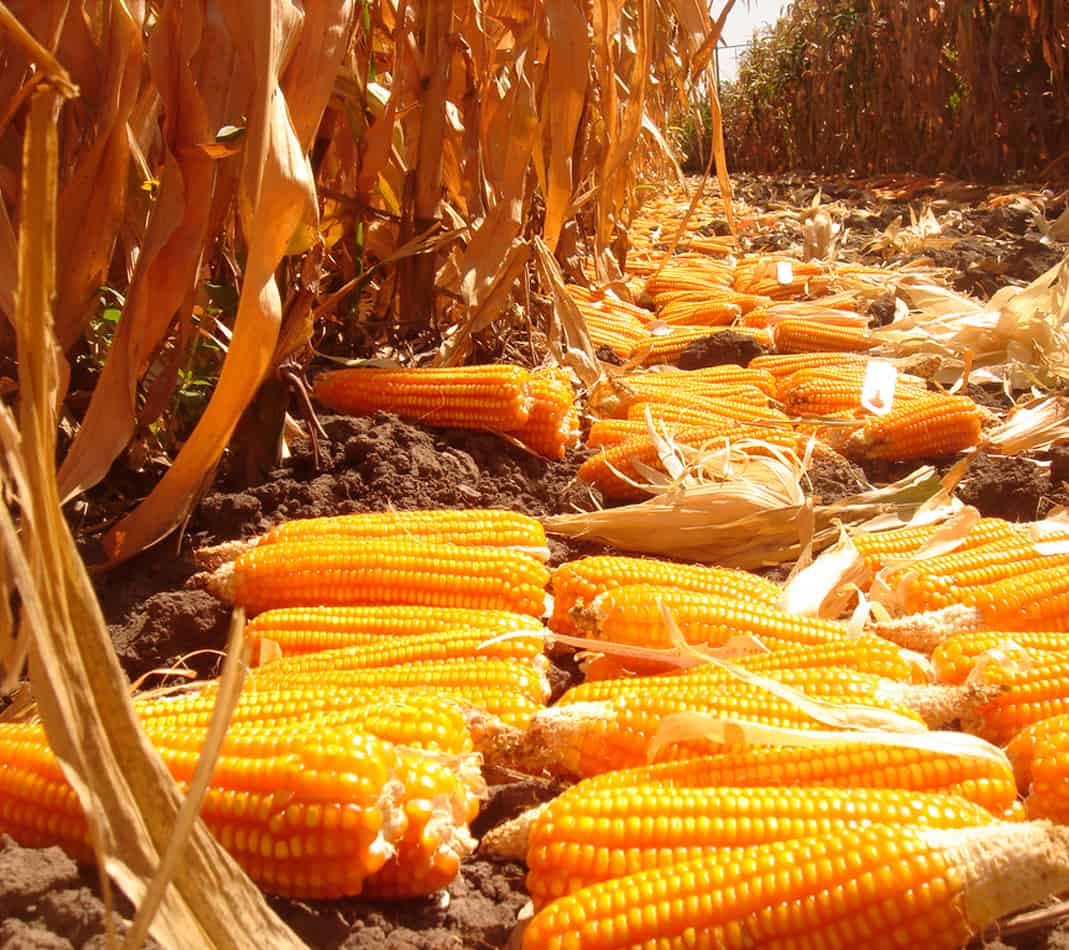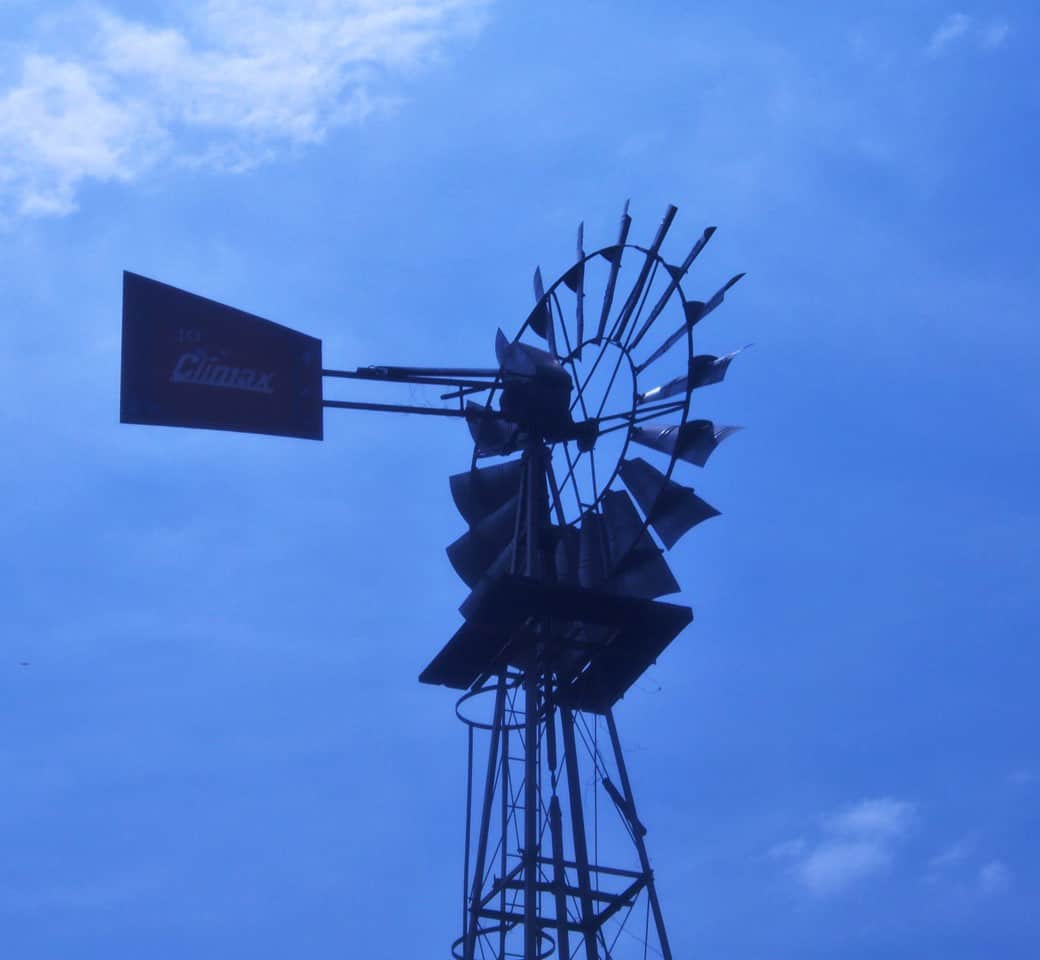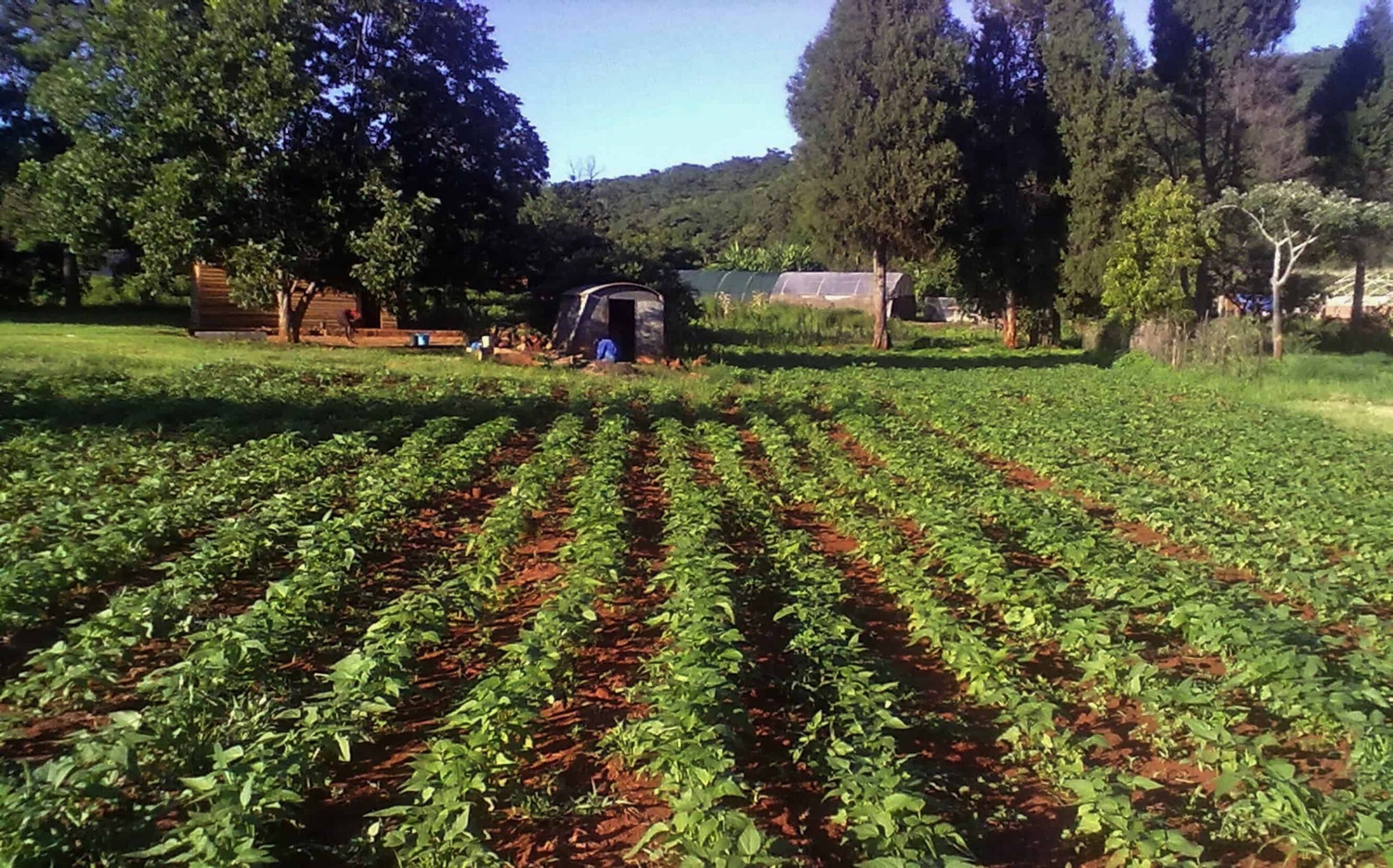Growing Organic Maize in Zimbabwe
Growing Organic Maize
After we cleared the land, we hired a farmer to advise us on a high demand crop that is a food staple. He recommended corn which is relatively easy to grow despite having a long maturation cycle. Of all the crops which have planted to date, corn has been the most robust and resistant to serious problems such as disease and insect pests. It is easy to grow, and the size of the field in which we plant the corn is expansive. This is necessary since the plant requires a lot of space to grow healthily, and consequently produce a high yield. The project yielded a harvest of 3.5 tons in our first season. The greatest threat to our corn fields are the troops of baboons that live in the area. We use fencing with barbed wire on the top to dissuade them from entering the property, because they can strip a field in a single night. Cornmeal-based dietary staple of Zimbabwe is also the national dish, called sadza. Sadza to the Zimbabweans is like rice to the Chinese, or pasta to Italians. (Source: Food in Every Country)



